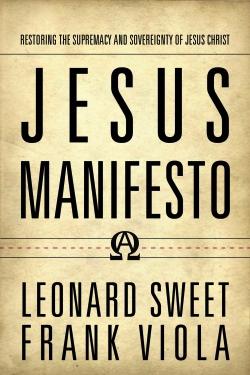A few weeks back, I touched on the issue of the increasing loss of people under 30 years of age in our churches (“The Church’s Lost Tribe“). The post was less about my thoughts and more about reader explanations for why this well-documented loss is occurring.
I’ll offer my thoughts today, but first, one more commentator.
Skye Jethani, one of the ascending names in post-Evangelicalism, attempts to pin the reason on the Internet’s favorite whipping boy: right-wing politics. Or more specifically, the Religious Right / Moral Majority interpretation of right-wing politics. For more, read his “Christianism Leads to Atheism” post.
Jethani cites an article “God and Caesar in America: Why Mixing Religion and Politics is Bad for Both” and attempts to data mine it. But like a bad doctor who automatically equates all headaches with brain tumors, Jethani assigns blame to the symptom rather than to the underlying disease.
In Jethani’s post, he states young people today are more politically liberal than older people. But if recent figures in the GOP primary are an indication, this is more a media sacred cow than reality. The most conservative candidate running is Ron Paul, and the hidden story is that Paul is crushing all the other GOP hopefuls in the 18-30 age demographic, winning (at last count) that group in every state that has held a primary. (If the 18-30 demographic, which has never been consistently enthusiastic about primaries, actually got to the polls in higher numbers, this might be a different race.) Even more compelling is that Paul is drawing young people who voted for Barack Obama in 2008 and are disillusioned with that president’s broken promises.
What young people find compelling in Ron Paul is he’s not ringmastering a dog and pony show. There are no smoke and mirrors. With Paul, they see a man who is not a political reptile but an authentic conservative from before the neo-cons grabbed control. They see a man with a real plan and genuine vision to fix problems and not just talk, talk, talk. To young people, authenticity matters more than just about any other trait. As they see it, Ron Paul lives what he believes, and what he believes rings true to them.
Can you see where this is going?
Oddly, the title of Jethani’s piece is more accurate than what follows in his post. Christianism does lead to atheism because Christianism (which is to Christianity as truthiness is to truth) isn’t genuine Christianity. It’s a twisted clone, inauthentic to the core.
It’s not that young people don’t like the politics of churches today. What they can’t stand is the dog and pony show that our churches have become.  What throws Jethani and others is that Christian political maneuvering is nothing more than a natural outgrowth of churches gone bad. It rushes into the vacuum left behind when genuine Christianity is gutted. The political mess and the culture wars are symptoms, but they are not the root of the disease.
What throws Jethani and others is that Christian political maneuvering is nothing more than a natural outgrowth of churches gone bad. It rushes into the vacuum left behind when genuine Christianity is gutted. The political mess and the culture wars are symptoms, but they are not the root of the disease.
Young people aren’t stupid. They can read the Book of Acts too. And the Church they find there is radically unlike the American Church of 2012.
If you want to blame a demographic for stupidity, look at the 35-65 group. We’re the ones that created these bogus churches that are all fluff and no substance. We’re the ones who are not feeding the poor, not evangelizing the world, not living in community, not building up each other’s gifts, not looking out for the needy in our own ranks, and generally disregarding every characteristic of the Church in Acts that made it vital, living, and desperately necessary to the lives of those early disciples. Young people today are not interested in boarding a train that has derailed. That many of us with some “maturity” are is a sign of our own ignorance.
Here’s the kicker: More and more of us who have been Christians for decades are fed up with pointless churches. We’re sick of the show too. With so many churches not living up to the standard we read in Acts, my peers and I will be the next group to go missing.
Christian commentators are wringing their hands over young people who when asked what their religion is say “none.” Honestly, I say good for those young people. Because the last thing the Church needs is more religion. What we need is Jesus Christ as Lord of our lives and for the Church to stop with the sideshows and to start looking less like a carnival and more like the authentic faith it was almost 2,000 years ago.
If that happens, I wouldn’t be surprised to hear the 18-30 year olds say, “What took you so long?”

